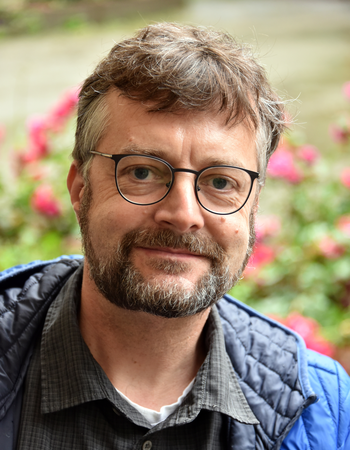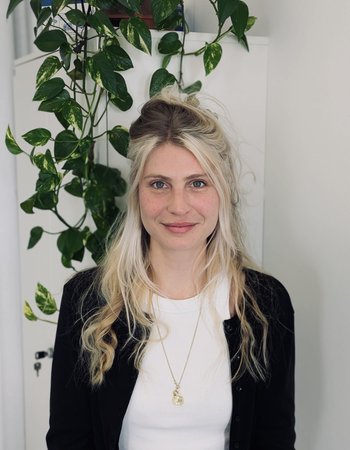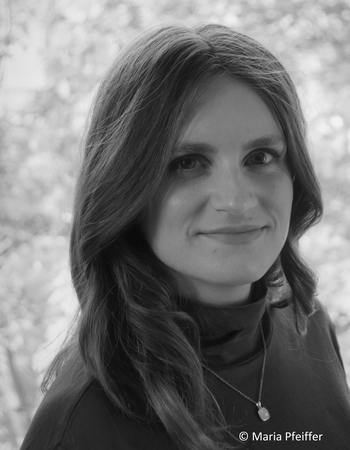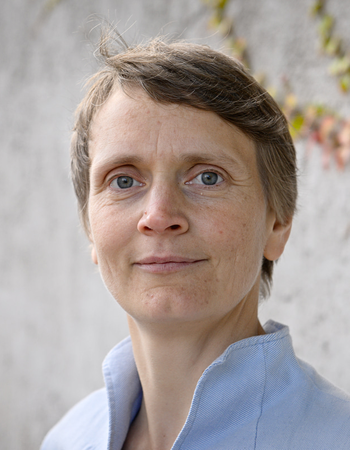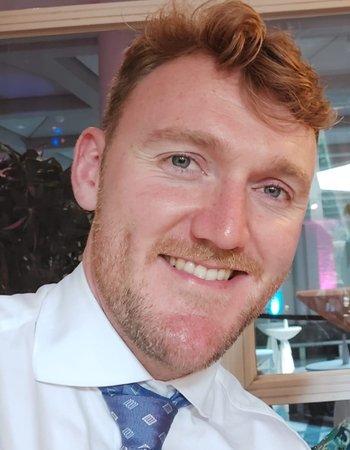Change in Energy as a Change in Ownership? Dynamics of Appropriation in European Wind Energy Expansion

Outline
In the context of Germany's energy transition, the first funding phase identified technological uncertainties and knowledge gaps in the management of wind and geothermal resources. These included challenges related to their valorisation and technical accessibility. The research also revealed a significant 'forgetting of ownership' through strategic 'non-knowledge' of ownership issues. This strategic ignorance appears to stem from, among other things, a desire on the part of state and economic actors to avoid conflicts that could hinder the expansion and economic use of wind and geothermal energy resources. The research also showed that the valorisation of wind as a resource can be understood as a series of property chains in which the legal status of wind as common property becomes irrelevant. In addition to wind turbines and the land on which they stand, this chain of property objects also includes communication infrastructures, neighbouring properties, road networks, electricity grids, international value chains and rights of use and disposal over land. These interlinked property structures constitute a socio-technical constellation embedded in shifting economic, political, ecological, cultural and legal contexts.
Building on these findings, the second funding phase aims to identify the characteristics and dynamics of different property regimes in the wind energy sector through internationally comparative case studies. The central question is whether and to what extent the decarbonisation of energy production is accompanied by a reconfiguration of ownership structures in the energy sector. The conceptual insights from the first phase—particularly regarding ownership chains and ownership oblivion in wind energy—will be tested and refined through empirical international comparison. By examining different national contexts, the research seeks to determine whether wind energy valorisation processes vary significantly or assume relatively stable forms. Portugal, with its large-scale wind energy expansion, and the United Kingdom, which has experienced shifts in energy policy due to Brexit, have been selected as case study countries.
To identify the specific ownership constellations in wind energy projects, as well as the emerging areas of conflict and competing interpretations of ownership structures, the study will analyse policy documents to outline the governance regimes shaping wind energy, with a particular focus on property-related issues.
The insights gained from the first phase of research in Germany—concerning the role of ownership structures in local conflicts and value creation in wind energy—will be systematically compared with the findings from Portugal and the United Kingdom. The study will derive implications for the development of more democratic structures of use and disposal rights and further refine the theory of property chains.
Project activities
Publications
Scientific Publications
-
Telesiene, Audrone; Groß, Matthias; Hadler, Markus (eds.) (2026): Green European Revisited: Environmental Behaviour and Attitudes in Europe in the Face of the Polycrisis, London: Palgrave Macmillan.
-
Groß, Matthias (2026): “Fruchtbare Gemengelagen: Die Umweltsoziologie mit epistemisch-methodischen Neuerungen auf wankendem ökologischem Boden”, in: Soziologische Revue 49 (1), DOI: 10.1515/srsr-2025-2057.
-
Groß, Matthias (2025): “Natur und Gesellschaft”, in: Albert Scherr; Stefan Müller (eds.): Soziologische Basics: Eine Einführung für pädagogische und soziale Berufe, 4th edition, Wiesbaden: Springer VS: 251-259.
-
Pfeiffer, Maria (2025): "Power, Property, and Participation: Rethinking the Role of Municipalities in German Wind Energy Development", in: Energy Policy 209, Part B, 115000, https://doi.org/10.1016/j.enpol.2025.115000.
-
Groß, Matthias (2025): "Energiewenden zwischen Mythos und Möglichkeit", in: Soziopolis: Gesellschaft beobachten.
-
Pfeiffer, Maria; Sonnberger, Marco (2025): „Rushing for the gold of the energy transition: An empirical exploration of the relevance of landownership for the wind energy expansion in Germany", in: Energy Research & Social Science 123, 104030, DOI: https://doi.org/10.1016/j.erss.2025.104030.
-
Sonnberger, Marco; Pfeiffer, Maria; Groß, Matthias (2024): „Who owns the wind? Understanding wind energy production through a property chains perspective“, in: Environment and Planning E: Nature and Space, https://doi.org/10.1177/25148486241282544.
-
Sonnberger, Marco; Bleicher, Alena; Groß, Matthias (eds.) (2024): Handbuch Umweltsoziologie. 2., vollkommen überarbeitete und erweiterte Auflage. Wiesbaden: Springer VS.
-
Sonnberger, Marco; Pfeiffer, Maria; Bleicher, Alena; Groß, Matthias (2024): „Wake effects and temperature plumes: Coping with non-knowledge in the expansion of wind and geothermal energy", in: Social Studies of Science 54 (6): 859-882.
-
Horn, Daniel; Groß, Matthias; Pfeiffer, Maria; Sonnberger, Marco (2022): „How Far Is Far Enough? The Social Constitution of Geothermal Energy through Spacing Regulations.“, in: Sustainability 14 (1): 496, https://doi.org/10.3390/su14010496.
-
Groß, Matthias; Sonnberger, Marco (2022): „Making the Most of Failure and Uncertainty: Welcome Surprises and Contingency in Energy Transition Research“, in: Energies 15: 6649.
-
Otto, Danny; Pfeiffer, Maria; de Brito, Mariana M.; Groß, Matthias (2022): „Fixed Amidst Change: 20 Years of Media Coverage on Carbon Capture and Storage in Germany“, in: Sustainability 14 (12): 7342. DOI: https://doi.org/10.3390/su14127342.
Media and Podcasts
-
Pfeiffer, Maria (2025): „Unterleuten über Eigentum. Die Tragödie der Anticommons und das Uncommoning im deutschen Windenergieausbau“, in: Blog des Sonderforschungsbereichs „Strukturwandel des Eigentums“ (veröffentlicht am 13.11.2025).
-
Organisation der öffentlichen Podiumsdiskussion (gemeinsam mit TP Z01) „Energiewende für alle? Zur Rolle von Eigentumsverhältnissen für den Wandel des Energiesystems“, Altes Rathaus, Jena (29.02.2024).
-
Öffentlicher Vortrag und Diskussion “Eigentumsverhältnisse und Bürger*innenbeteiligung in der Energiewende“, organisiert durch die Friedrich Ebert Stiftung (27.09.2023).
-
Öffentlicher Vortrag und Diskussion “Wem gehört der Wind? Eigentum und Beteiligung in der Energiewende“, organisiert durch die Friedrich Ebert Stiftung (06.04.2022).
-
Groß, Matthias; Pfeiffer, Maria; Horn, Daniel; Sonnberger, Marco (2022): „Blowing in the wind turbines“, in: Blog des Sonderforschungsbereichs „Strukturwandel des Eigentums“. (veröffentlicht am 17.03.2022).
Lectures
-
„The Land Question in the Energy Transition. On the Role of Landownership in Germany’s Wind Energy Expansion”; Vortrag von Robert Wade und Maria Pfeiffer bei der Konferenz “The Land Question/Die Bodenfrage”, Humboldt-Universität zu Berlin (30.-31.10.2025).
-
„Kommunales Eigentum: Eine Frage der Energiegerechtigkeit im Windenergieausbau“; Vortrag von Maria Pfeiffer bei der gemeinsamen Frühjahrstagung der DGS-Sektionen Wissenschafts- und Technikforschung und Umwelt- und Nachhaltigkeitssoziologie; TU Dortmund (26.-27.06.2025).
-
„Kommunales Eigentum: Eine Frage der Energiegerechtigkeit im Windenergieausbau“; Vortrag von Maria Pfeiffer bei der gemeinsamen Frühjahrstagung der DGS-Sektionen Wissenschafts- und Technikforschung und Umwelt- und Nachhaltigkeitssoziologie; TU Dortmund (26.-27.06.2025).
-
„Who owns the Wind? Uncommoning the Commons“; Vortrag von Maria Pfeiffer und Marco Sonnberger bei der Jahresabschlusstagung des SFB/TRR 294 „Strukturwandel des Eigentums“; Universität Jena (07.11.2024).
-
„Energiedemokratie im deutschen Windenergieausbau? Zur Ungleichverteilung der Entscheidungsmacht in der Energiewende“; Vortrag von Maria Pfeiffer und Marco Sonnberger bei der Tagung des DGS-Arbeitskreises „Soziologie der Nachhaltigkeit“ (SONA) und der DGS-Sektion Umwelt- und Nachhaltigkeitssoziologie; Universität Stuttgart (06.-07.06.2024).
-
„Leaking in or leaking out – Conceptual thoughts on underground leakage”; Vortrag von Danny Otto, Alena Bleicher, Matthias Groß, Marco Sonnberger und Maria Pfeiffer bei Leakage – Inaugural Conference of stsing; TU Dresden (19.03.-22.03.2024).
-
„Landeigentum als entscheidende Weichenstellung für die Partizipation an der Windenergie“; Vortrag von Maria Pfeiffer und Marco Sonnberger beim Workshop „Energiekrise, Eigentum und Daseinsvorsorge – das Energiesystem im Wandel“; Universität Jena (29.02.2024).
-
„Wem gehört der Wind? Soziologische Betrachtungen zu Eigentumsverhältnissen in der Energiewende“; Vortrag von Marco Sonnberger und Maria Pfeiffer beim Kolloquium Infrastruktur & Gesellschaft; Universität Stuttgart (13.12.2023).
-
„Wake Effects and Temperature Plumes: Coping with Nonknowledge in the Expansion of Wind and Geothermal Energy“; Vortrag von Marco Sonnberger und Maria Pfeiffer bei der 6th Energy and Society Conference; University of Trento (06.-08.09.2023).
-
„Wind energy, property regimes and nature-society-technology relations: an empirical exploration of the social perception of wind as an property object“; Vortrag von Maria Pfeiffer und Marco Sonnberger bei der 6th Energy and Society Conference; University of Trento (06.-08.09.2023).
-
„Grenzen der Inwertsetzung von Wind und Untergrundwärme als Grenzen des Wissens“; Vortrag von Matthias Groß, Marco Sonnberger und Maria Pfeiffer beim 41. DGS-Kongress der Deutschen Gesellschaft für Soziologie (DGS); Universität Bielefeld (26.-30.09.2022).
-
„Renewable Energies and Shifting Property Rights: Reckoning Limits of Renewability“; Vortrag von Matthias Groß beim Global Meeting on Law & Society 2022; ISCTE University Institute of Lisbon (13.-16.07.2022).
-
„Kältefahnen und Abschattungseffekte – Die soziale Konstitution von Erneuerbarkeit und die Grenzen des Wissens“; Vortrag von Marco Sonnberger bei der Frühjahrstagung der Sektion Umwelt- und Nachhaltigkeitssoziologie der Deutschen Gesellschaft für Soziologie (DGS); Europa-Universität Flensburg (31.03.-01.04.2022).
-
„Who Owns the Wind? Wind Theft as a New Challenge for the Sociology of Not Knowing“; Vortrag von Marco Sonnberger bei der 15. Konferenz der European Sociological Association; Barcelona (31.08.-03.09.2021).
-
„Who Owns the Wind? Wind Theft as a New Challenge for the Sociology of Not Knowing“; Vortrag von Matthias Groß und Marco Sonnberger bei der STS Conference Graz 2021; TU Graz (03.-05.05.2021).
Events
-
Organisation des Panels „Materielle Versorgungsinfrastrukturen im Wandel: Wem gehören Wind und Wasser?“ auf der Jahresabschlusstagung des SFB/TRR 294 „Strukturwandel des Eigentums“; Universität Jena (06.-09.11.2025).
-
Organisation des Panels “Ownership, energy justice and the expansion of renewables” auf der STS Conference Graz 2024; TU Graz (06.-04.08.2024).
-
Organisation des Workshops (gemeinsam mit TP C04, JRT 03, Z01) „Energiekrise, Eigentum und Daseinsvorsorge – das Energiesystem im Wandel“; Universität Jena (29.02.-01.03.2024).
-
Organsiation des Panels „The transition to low-carbon energy systems and new regimes of ownership“ auf der STS Konferenz Graz 2022; TU Graz (02.-04.05.2022).
